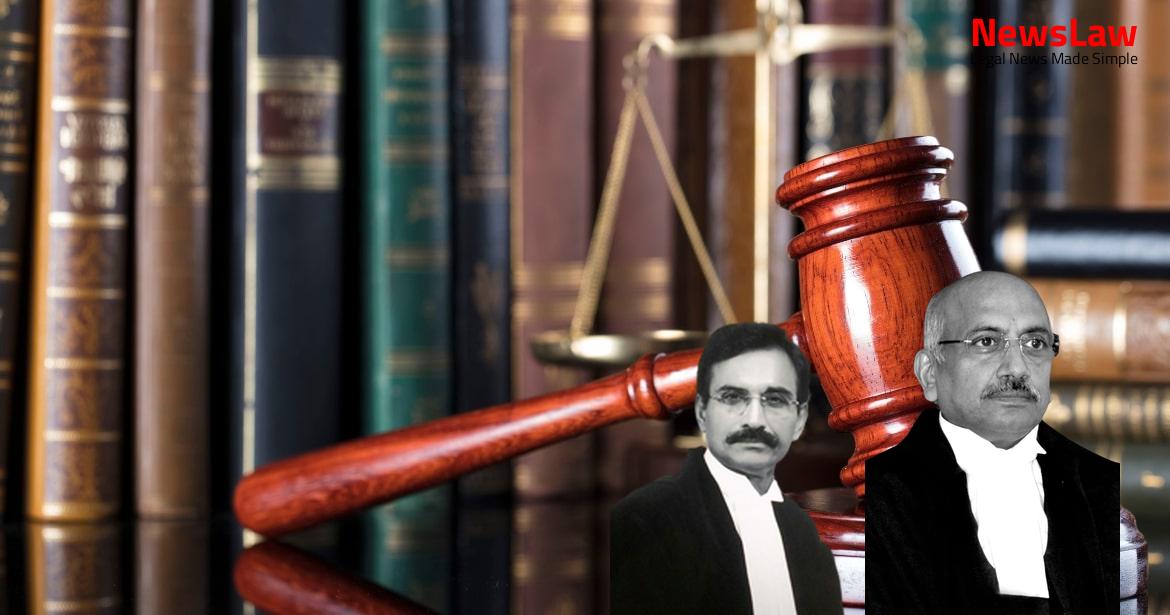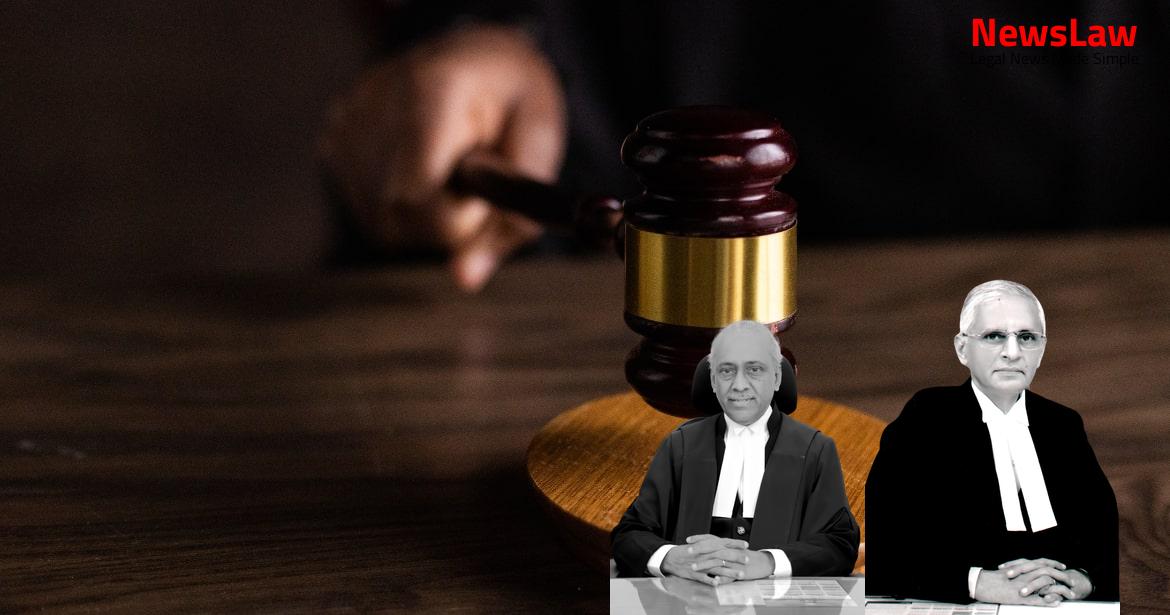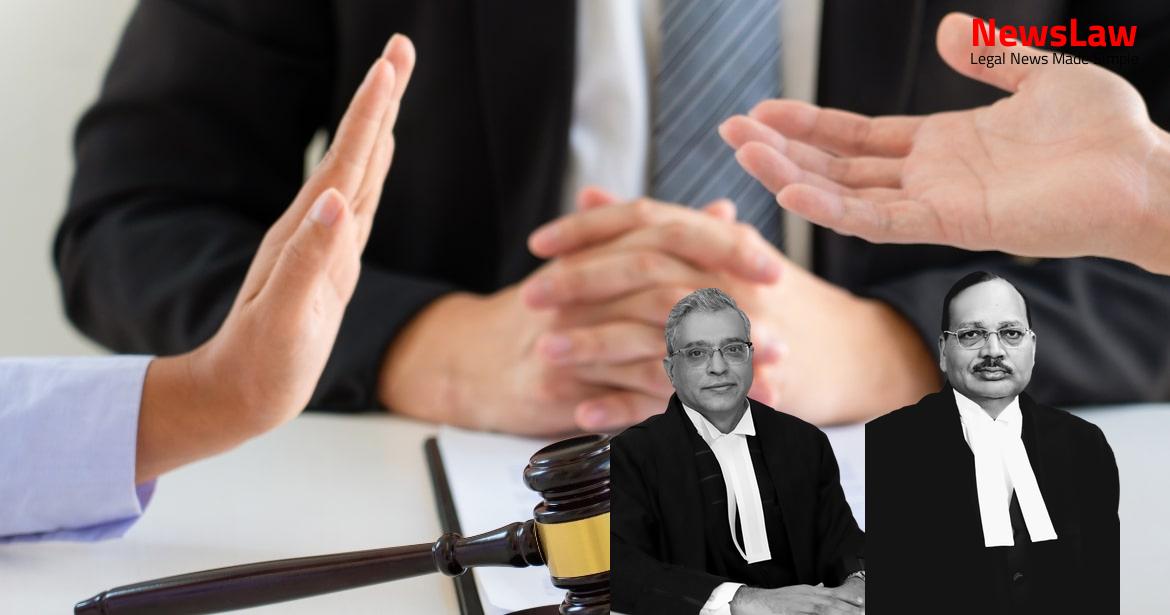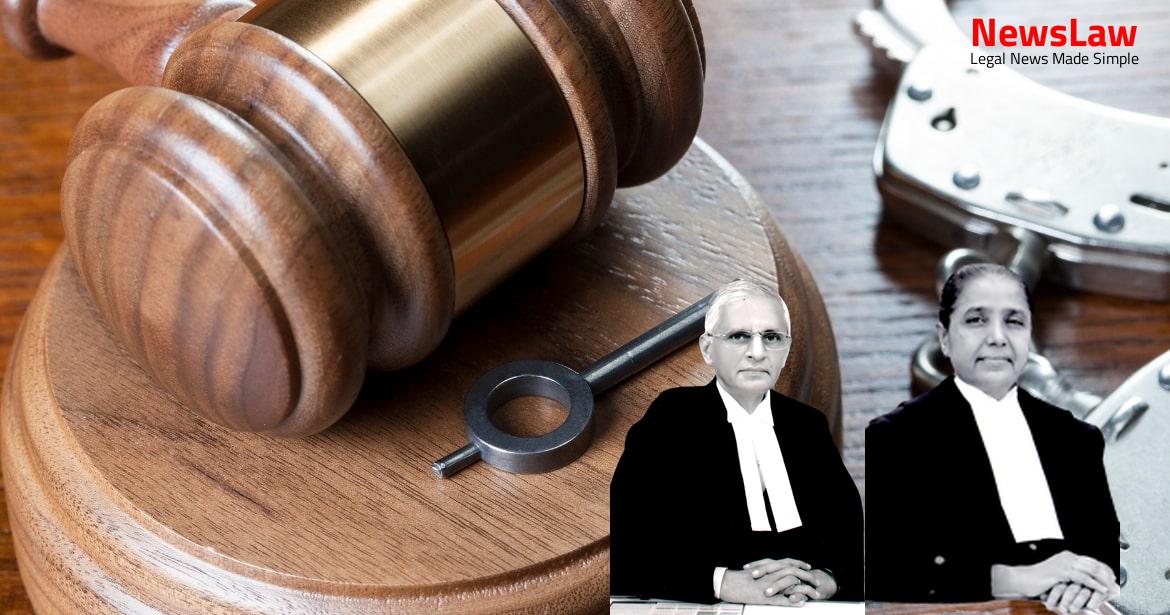In a significant legal battle, the Supreme Court of India has issued a judgment regarding the employment termination of Dr. Samrat Sharma. The case delves into complex issues of fair trial, administrative procedures, and justice. Stay informed as we explore the details of this crucial ruling. #SupremeCourt #EmploymentLaw #LegalCase #JusticeServed
Facts
- Dr. Samrat Sharma filed a writ petition challenging the termination of his services and approval by the Vice Chancellor.
- Dr. Samrat Sharma was found guilty of charges and recommended for criminal prosecution by the Enquiry Committee.
- Dr. Samrat Sharma wrote letters directly to the Director of Higher Education, Uttarakhand, leading to insubordination.
- A case was registered against Dr. Samrat Sharma for forging in bills towards educational equipment.
- The Enquiry Committee concluded that Dr. Samrat Sharma used indecent language and aggressive behavior during a staff meeting.
- Dr. Samrat Sharma was asked to submit a written statement by a specific date but failed to appear before the Enquiry Committee.
- Respondent No.1 was terminated but later reinstated with directed salary payment during suspension
- High Court found that Respondent No.1 did not have sufficient opportunity to defend himself in the enquiry
- High Court believed there was insufficient evidence to hold Respondent No.1 guilty of the charges
- High Court stated that the penalty of termination was not appropriate for the allegations against Respondent No.1
Also Read: Supreme Court Ruling on Dowry Harassment and Suicide Case
Arguments
- The procedure prescribed under the Universities Act and the First Statutes was diligently followed by the College Management during the enquiry against Petitioner No.1.
- High Court should not have intervened in the termination of Petitioner No.1’s services by reassessing the evidence already considered in the departmental enquiry.
- Serious allegations of harassment were raised against Petitioner No.1 by Petitioner No.5, constituting misconduct under the First Statutes.
- No leniency should be granted to Petitioner No.1 due to the gravity of the allegations.
- Argued that the College Management’s decision to terminate Petitioner No.1’s services was justified based on the findings of the enquiry.
- Respondent (Original Name) was not given an opportunity to defend himself in the enquiry, especially regarding the supplementary charges.
- The enquiry conducted against Respondent was in contravention of the First Statutes framed under the Universities Act.
- The order of termination of Respondent’s services was passed within ten days of making supplementary charges against him.
- The decision of the Management is alleged to be biased as Respondent No.5 and the Principal of the Management Committee were accused of conspiring to remove Respondent from the College.
Also Read: Case of Technical Equipment Officer Appointment Criteria Dispute
Analysis
- The First Statutes were framed under the Uttar Pradesh State Universities Act, 1973, leading to the termination of Petitioner No.1’s services on 13.04.2014.
- A fact-finding enquiry was conducted based on a committee report regarding three charges against Petitioner No.1.
- The High Court overstepped its judicial review limits by stating that the evidence did not support the termination order, which was an error.
- Petitioner No.1 missed utilizing the opportunity given to him during the enquiry process.
- The enquiry conducted by the Management violated the prescribed procedure under the First Statutes.
- Courts cannot re-evaluate evidence to reach a different conclusion; sufficiency of evidence lies with the administrative authority.
- Supplementary charges were later issued, and a final report was submitted within ten days, showing proper decision-making process.
- Judicial review focuses on the decision-making process rather than the decision itself.
- A committee conducted a preliminary enquiry into the initial three charges, followed by a supplementary charge sheet.
- Clause 17.06 of the First Statutes outlines the procedure for handling the dismissal, removal, or termination of teaching staff in affiliated colleges.
- Teachers must be given a fair opportunity to present a written defense, be heard in-person, and call witnesses in their defense when facing disciplinary action.
- In the case of termination, one month’s notice or payment in lieu of salary is required on both sides for temporary or officiating teachers.
- Dismissal or removal of teachers requires justifiable grounds such as neglect of duty, misconduct, or incompetence as per Clause 17.04.
- A Principal can be dismissed or removed for mismanagement or the specified grounds under Clause 17.04.
- Exceptions to the notice requirement apply when termination is due to specific reasons like breach of contract terms by either party.
- The procedure prescribed under the First Statutes was violated during the departmental enquiry against the officer.
- The High Court’s judgment setting aside the order of termination was affirmed.
- Interference with the penalty imposed on delinquent officers is permissible if it shocks the conscience of the court.
Also Read: Supreme Court Judgement on Transfer of Mining Environmental Clearances
Decision
- Respondent No.1 is entitled to claim salary during the period of suspension.
- Appellant-College is allowed to conduct a fresh enquiry into the communicated charges against Respondent No.1, if they choose to do so.
Case Title: SECRETARY MANAGING COMMITTEE BSMPG COLLEGE ROORKEE Vs. DR. SAMRAT SHARMA
Case Number: C.A. No.-006189-006189 / 2019



